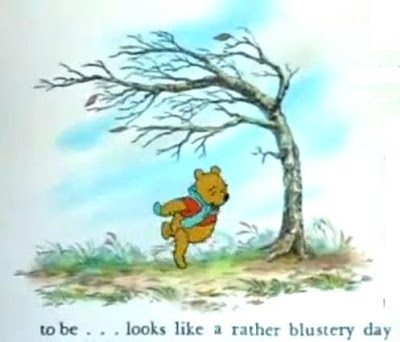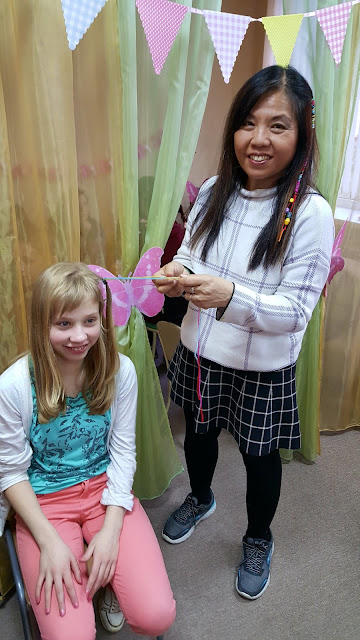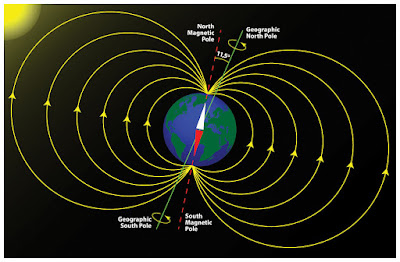I am going to buy an umbrella that is windproof
that is designed to be resistant to strong wind gusts. In Ireland an
umbrella is a necessity because there are so many ‘blustery days’ in the words
of Winnie the Pooh.
Winnie the Pooh has always been one of my favourite childhood characters. Not so
much the mass produced Disney version of the orange coloured bear but the
original vintage hand drawn bear.
I don’t know whether Winnie the Pooh is as famous as Mickey Mouse but
the fact that he is actually 91 (his longevity must be due to the health benefits
of honey, his favourite food) this year earns him some space in my article this
week.
Created by A.A. Milne in 1926, he lives on the Hundred Acre Wood which
in reality is a cultivated pine plantation called the Five Hundred Acre Wood,
South East England. Pooh Corner in Hartfield village is home to a large
selection of ‘Poohphernalia’.
His search for honey makes him an unwelcome guest to the bees or even to
his friend Rabbit who fears Pooh might eat him out of house and home. He is quite
a celebrity even. On Queen Elizabeth’s 90th birthday last year,
Winnie went to Buckingham palace and presented her with a song.
But he is endearing alright and most of all his philosophy of life is
actually rather helpful.
No
overthinking.
Rightfully so, as he is a bear of very little brain and is stuffed with
fluff. Most of us tend to worry too much or analyse too much. Truth be told
most of the stuff that we worry about never actually materialise in the end.
Sometimes we over analyse another person’s words and get ourselves all worked
up. When we finally seek clarification from the person who uttered the words,
we find that they may not be what we thought they were in the first place.
Unfortunately, not everyone seeks clarification and so we may go through days
or even years being upset over what we thought we heard. Sounds convoluted but
it is true.
No
fences.
“Tigger
is all right, really,” said Piglet lazily. “Of course he is,” said Christopher
Robin. “Everybody is really,” said Pooh. “That’s what I think.” (The House at
Pooh Corner, p. 108) There is this air of acceptance in the face of staggering
differences. It has often been said that a stranger is a just a friend I
haven’t met yet. Far too often we base our judgement of others through first
impressions because there are so many in-built filters in our minds. These
filters could be anything from experiences, opinions, prejudices and
judgements.
Granted
some of these first impressions are right. It is most natural that we find
comfort among those who are of similar disposition and share our interests. But
I have met so many that I never thought I could be great friends with because
they are so very different from me. Imagine if I have not allowed myself to
embrace these differences, I would have missed out on such a great friendship.
No such thing as a silly question.
One
of the greatest technique to learn something new is to ask. Children are never
afraid to ask. But adults generally are more reserved in that area due to
embarrassment or pride perhaps. I find myself asking a lot of questions because
I want to know the specific.
Sometimes
the person at the other end thinks I’m an ignoramus and gets impatient with me.
Recently
I signed up for a postal service called AddressPal whereby I am given a postal
address in the UK for online purchases. The website was not very clear so I
called up the customer service and asked for specific information. I could
sense the voice on the other end of the line getting agitated by my questions.
Then
there are those who give very vague answers. The plumber tells me that he’s
coming after dinner to fix my leaky pipe. To me that is no help at all because
I wouldn’t know what time he eats his lamb stew and spuds. So when I ask him
for a possible time he feels pressured.
So,
how did I end up writing about Pooh’s philosophy of life? Oh yes, it is about
buying a windproof umbrella and I should get it now before the blustery day
comes.
THIS ARTICLE WAS ORIGINALLY PRINTED IN THE NEW STRAITS TIMES MALAYSIA, 21 MAY 2017. https://www.nst.com.my/opinion/columnists/2017/05/241116/lessons-winnie-pooh
THIS ARTICLE WAS ORIGINALLY PRINTED IN THE NEW STRAITS TIMES MALAYSIA, 21 MAY 2017. https://www.nst.com.my/opinion/columnists/2017/05/241116/lessons-winnie-pooh













